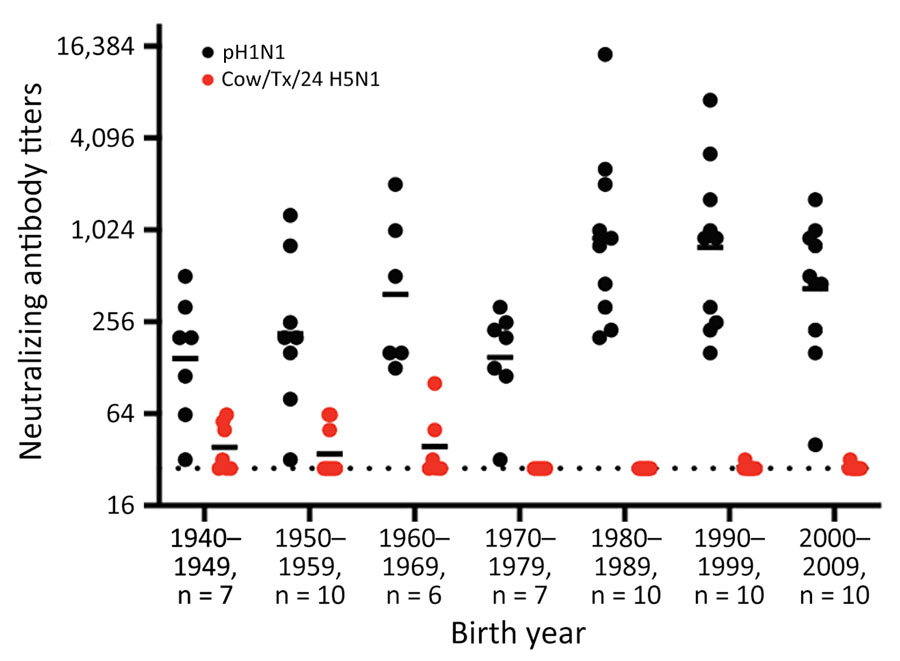Influenza A(H5N1) Immune Response among Ferrets with Influenza A(H1N1)pdm09 Immunity
Valerie Le Sage

, Bailee D. Werner, Grace A. Merrbach, Sarah E. Petnuch, Aoife K. O’Connell, Holly C. Simmons, Kevin R. McCarthy, Douglas S. Reed, Louise H. Moncla, Disha Bhavsar, Florian Krammer, Nicholas A. Crossland, Anita K. McElroy, W. Paul Duprex, and Seema S. Lakdawala
Author affiliation: Author affiliations: University of Pittsburgh, Pittsburgh, Pennsylvania, USA (V. Le Sage, B.D. Werner, G.A. Merrbach, S.E. Petnuch, H.C. Simmons, K.R. McCarthy, D.S. Reed, L.H. Moncla, A.K. McElroy, W.P. Duprex); Boston University, Boston, Massachusetts, USA (A.K. O’Connell, N.A. Crossland); Icahn School of Medicine at Mount Sinai, New York, New York, USA (D. Bhavsar, F. Krammer); Medical University of Vienna, Vienna, Austria (F. Krammer); Boston University Chobanian & Avedisian School of Medicine, Boston, Massachusetts, USA (N.A. Crossland); Emory University, Atlanta, Georgia, USA (S.S. Lakdawala)
Main Article
Figure 1

Figure 1. Neutralizing antibody titers in human serum used in a study of influenza A(H5N1) immune response among ferrets with pH1N1 immunity. We used serum samples collected from healthy persons during 2020–2021 with birth years ranging from 1940–2009. We tested serum for neutralizing antibodies against pH1N1 virus and 2024 outbreak virus A/dairy cattle/Texas/24-008749-001/2024(H5N1). Each dot represents the neutralizing antibody titer of a single person to neutralize 100 TCID50 of pH1N1 or cow/Tx/24 H5N1 on Madin-Darby canine kidney cells. Solid horizontal lines indicate the geometric mean value each birth decade; dotted line represents the limit of detection for the assay. cow/Tx/24, A/dairy cattle/Texas/24-008749-001/2024(H5N1); pH1N1, influenza A(H1N1)pdm09; TCID50, 50% tissue culture infectious dose.
Main Article
Page created: January 21, 2025
Page updated: February 28, 2025
Page reviewed: February 28, 2025
The conclusions, findings, and opinions expressed by authors contributing to this journal do not necessarily reflect the official position of the U.S. Department of Health and Human Services, the Public Health Service, the Centers for Disease Control and Prevention, or the authors' affiliated institutions. Use of trade names is for identification only and does not imply endorsement by any of the groups named above.
